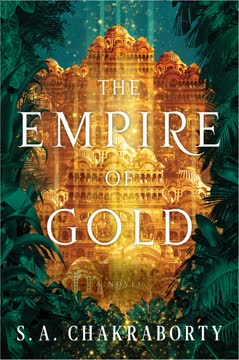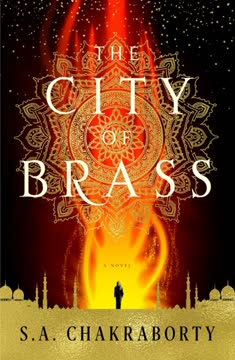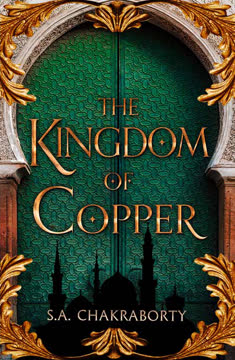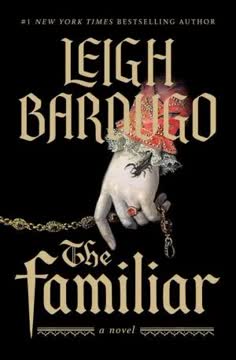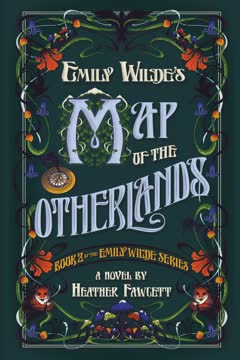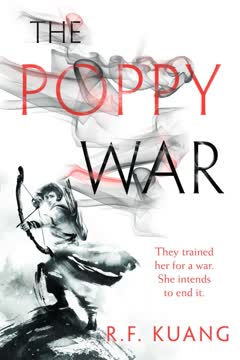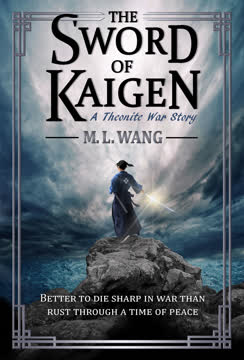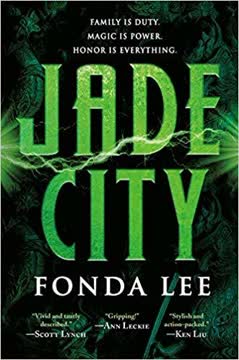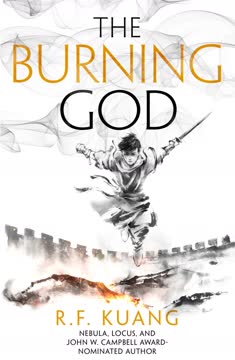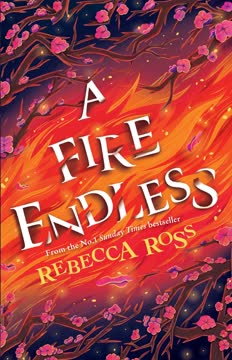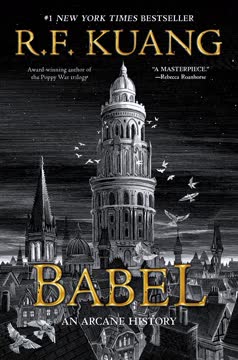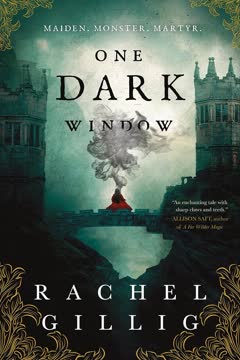Plot Summary
The Gilded City Falls
The story opens with Daevabad in chaos: Manizheh, the last Nahid, and her Afshin, Dara, have seized the city in a bloody coup. Magic vanishes as Suleiman's seal is taken from the city, and the city's tribal quarters barricade themselves in fear. Nahri and Ali, exiled and powerless, are flung to Cairo by marid magic, forced to reckon with loss, guilt, and the shattering of their world. The city's heart is broken, its people leaderless, and the old order is dead. The stage is set for a reckoning that will demand impossible choices and sacrifices from all.
Chains of Blood and Magic
In Daevabad, Manizheh consolidates power through executions, blood magic, and the enslavement of Dara. The Afshin, once a hero, is now a weapon, forced to destroy entire neighborhoods at her command. The ifrit, ancient enemies, are unleashed, and the city's streets run with blood. The Daeva nobles, once her allies, are slaughtered for treason, and the city's magic is twisted into a tool of oppression. Dara's soul is torn between loyalty, guilt, and the horror of what he's become.
The Exiles' Return
In Cairo, Nahri and Ali struggle to recover from trauma and loss. Nahri finds solace in healing, reclaiming her identity as a doctor, while Ali is haunted by the marid's magic and his own monstrous heritage. When news of Daevabad's suffering reaches them, they realize they cannot abandon their people. With the help of old friends and new allies, they set out to build a coalition, gathering shafit, djinn, and even pirates for a return to the city they once called home.
The Marid's Bargain
Ali's marid ancestry is exposed as he bargains with Sobek, the Nile marid, to save Nahri and himself. The marid demand a price: Ali's fire magic and his very identity. He accepts, losing his place among the djinn but gaining the power to travel the world's waters. The marid's memories flood him, revealing the ancient pact that shaped his family and the cost of breaking it. Ali's sacrifice becomes the key to uniting the tribes and returning to Daevabad.
The Shattered Throne
In Daevabad, Manizheh's rule grows ever more brutal. She unleashes blood magic, enslaves Dara, and gives the ifrit the souls of the city's dead. The city's quarters are devastated, and the people's hope fades. But resistance stirs: Zaynab, Ali's sister, leads a confederation of Geziris and shafit, while Jamshid, revealed as Manizheh's son, becomes a symbol of a new Nahid legacy. The city teeters on the edge of civil war, and the cost of peace grows ever higher.
The Hospital of Hope
Back in Daevabad, Nahri reclaims her place as a healer, transforming the hospital into a sanctuary for all. She forges alliances with shafit doctors and former slaves, breaking taboos and challenging centuries of prejudice. The hospital becomes a microcosm of the city's future—a place where djinn, Daeva, and shafit work side by side. Nahri's vision of justice and inclusion offers a fragile hope amid the city's ruins.
The Scourge Unleashed
Enslaved by Manizheh's blood magic, Dara is forced to destroy Daevabad's quarters, slaughtering thousands at her command. His soul is torn apart by guilt and horror, but he cannot disobey. The city's survivors, led by Zaynab and Jamshid, are driven to the brink. The peris, ancient air spirits, finally intervene, offering Nahri a weapon to end Dara's rampage—but at a terrible cost.
The Price of Peace
As Nahri and Jamshid return to Daevabad, they confront Manizheh and Dara atop the palace. The peris' dagger, the marid's army, and the city's magic all converge in a final reckoning. Manizheh's crimes are exposed, and Dara, in a moment of clarity, turns on his mistress, killing her to save the city. The cost of peace is steep: old wounds are reopened, and the survivors must choose between vengeance and forgiveness.
The Peri's Dagger
The peris demand that Nahri kill Dara to restore balance and magic to the world. Armed with their icy dagger, she confronts Dara, torn between love, justice, and the weight of history. In a desperate gambit, she turns the blade on herself, forcing the peris' hand and claiming the power of Suleiman's seal. Her sacrifice becomes the act that heals Daevabad and breaks the cycle of violence.
The Lake's Wrath
As Manizheh unleashes blood magic and the ifrit raise an army of ghouls, Ali returns with a fleet of marid-raised ships and a coalition of tribes. He faces Tiamat, the marid mother, and sacrifices his fire magic to save Daevabad. The marid and djinn join forces to defeat the ifrit and restore balance, but Ali's transformation leaves him forever changed—a bridge between worlds.
The Last Stand
The city becomes a battlefield as blood, fire, and water magic clash. Nahri, Jamshid, and their allies fight to free the city from Manizheh's tyranny and the ifrit's schemes. Dara, freed from slavery, turns his power against his former mistress. The cost is immense, but the survivors seize a chance to build something new from the ashes.
The Breaking of Chains
With Manizheh dead and the ifrit defeated, Nahri and Jamshid free the enslaved souls and begin the work of healing. Dara, finally at peace, chooses exile, dedicating his life to rescuing the lost and enslaved. The survivors must reckon with their own guilt and grief, forging a new path for Daevabad.
The Mountain Rises
Nahri, wielding Suleiman's seal, raises a mountain to separate the city from the marid's lake, restoring magic and balance. The city's walls fall, and the survivors—djinn, Daeva, and shafit—begin to rebuild. Nahri and Ali, changed by their journeys, choose to lay down roots and create a new home, one built on justice, healing, and hope.
The Healing of Daevabad
The city's wounds are deep, but Nahri's hospital becomes a beacon of hope. She and Ali work to unite the tribes, share power, and break the cycle of vengeance. Jamshid, now a Nahid, finds his place as a healer and leader. The survivors mourn their dead, honor their ancestors, and look to the future.
The Cost of Survival
The survivors of Daevabad's wars must reckon with their own choices and the pain they have caused. Nahri and Ali, both marked by sacrifice, struggle to find peace and forgiveness. Dara, exiled and alone, dedicates himself to a new purpose. The city's new government is born from compromise, hope, and the hard lessons of history.
The New Pact
The tribes gather to forge a new government, one built on justice, inclusion, and shared power. Nahri and Ali, partners in healing and leadership, lay the foundation for a Daevabad where all are welcome. The cycle of violence is broken, and the city's future is placed in the hands of its people.
The Roots of Home
In the aftermath, Nahri and Ali choose to build a life together, rooted in the city they have saved. The hospital thrives, the city's wounds begin to heal, and the survivors look to the future with hope. The story ends not with a coronation, but with a promise: that justice, healing, and love will guide Daevabad into a new age.
Characters
Nahri
Nahri is the heart of the trilogy—a shafit (half-human, half-djinn) woman who rises from the streets of Cairo to become Daevabad's most powerful healer and, ultimately, its savior. Her journey is one of self-discovery, resilience, and the struggle to reconcile her human and magical heritages. Nahri's relationships—with Dara, Ali, Jamshid, and her found family—are marked by longing, betrayal, and forgiveness. She is fiercely pragmatic, yet driven by a deep sense of justice and compassion. Her greatest strength is her refusal to be defined by others' expectations, and her ultimate act of sacrifice and healing breaks the cycle of violence that has plagued her world.
Ali (Alizayd al Qahtani)
Ali is a prince torn between duty, faith, and the monstrous legacy of his blood. Haunted by guilt and the marid's magic, he sacrifices his fire magic and his place among the djinn to save Daevabad. Ali's journey is one of reckoning with his family's sins, learning to lead with humility, and forging alliances across tribal and elemental lines. His love for Nahri is both a source of strength and vulnerability, and his transformation into a marid ambassador marks him as a symbol of change and hope. Ali's struggle is to find belonging and purpose in a world that fears what he has become.
Dara (Darayavahoush e-Afshin)
Dara is the legendary Afshin, a man forged into a weapon by the Nahids and broken by centuries of slavery and war. His loyalty to Manizheh and the Daevas is absolute, yet it is twisted into horror when he is enslaved again by blood magic. Dara's psyche is marked by guilt, trauma, and a desperate longing for peace. His love for Nahri is both redemptive and tragic, and his final act—killing Manizheh and choosing exile—marks his quest for atonement. Dara's journey is a meditation on the cost of obedience, the burden of history, and the hope of forgiveness.
Manizheh
Manizheh is the last Nahid, a woman of extraordinary power and ambition whose trauma and rage drive her to monstrous acts. Her love for her children is real but warped by her need for control and vengeance. Manizheh's use of blood magic, her alliance with the ifrit, and her enslavement of Dara mark her as both victim and villain. Her downfall is a cautionary tale about the dangers of unchecked power and the inability to break free from the cycle of violence.
Jamshid
Jamshid is Manizheh's son, a gentle soul thrust into the center of Daevabad's conflicts. His journey is one of self-acceptance, as he learns of his Nahid heritage and steps into a role of leadership and healing. Jamshid's love for Muntadhir and his loyalty to Nahri are sources of strength and pain. He is a symbol of the new Daevabad—one that values compassion, inclusion, and the breaking of old taboos.
Zaynab
Zaynab, Ali's sister, emerges as a leader of the city's resistance, uniting Geziris and shafit in the face of tyranny. Her journey is one of self-empowerment, as she steps out of the palace's shadow to claim her own agency. Zaynab's pragmatism, courage, and loyalty to her family make her a vital force in the city's rebirth.
Muntadhir
Muntadhir is the eldest Qahtani, a man torn between duty, love, and the trauma of war. His relationship with Jamshid is a source of both joy and tragedy, and his survival is marked by guilt and the need to find a new purpose. Muntadhir's arc is one of reckoning with privilege, loss, and the possibility of redemption.
Fiza
Fiza is a shafit pirate who becomes a key ally to Nahri and Ali. Her pragmatism, wit, and refusal to be defined by her blood make her a symbol of the new order. Fiza's journey is one of survival, loyalty, and the hope of a better future for her people.
Subha
Subha is a shafit doctor whose partnership with Nahri transforms the hospital into a place of healing for all. Her wisdom, resilience, and insistence on justice challenge Nahri and the city to do better. Subha's arc is one of breaking taboos, forging alliances, and demanding a place at the table.
Sobek
Sobek is the Nile marid, Ali's ancestor, whose bargains and memories shape the fate of the city. He is both monstrous and paternal, a being whose perspective is alien yet whose actions are driven by ancient pacts and the need for balance. Sobek's relationship with Ali is a meditation on legacy, power, and the cost of survival.
Plot Devices
Cycles of Violence and Redemption
The trilogy's narrative structure is built on cycles: of conquest and rebellion, of vengeance and forgiveness, of power and sacrifice. The story uses parallel arcs—Nahri's rise from exile, Ali's transformation, Dara's enslavement and redemption—to explore how individuals and societies are shaped by trauma and the choices they make in response. The use of blood magic, the marid's bargains, and the peris' interventions all serve as metaphors for the ways in which power is both inherited and seized, and how breaking the cycle requires acts of radical empathy and self-sacrifice.
Enslavement and Free Will
The motif of slavery—literal and metaphorical—runs throughout the novel. Dara's repeated enslavement, Manizheh's control, and the ifrit's bargains all interrogate the boundaries of free will, loyalty, and the cost of obedience. The breaking of chains, both magical and psychological, is the key to the characters' liberation and the city's healing.
Found Family and Chosen Community
The story subverts the idea of bloodline as destiny, showing that family is chosen through acts of love, loyalty, and forgiveness. Nahri's found family—Ali, Jamshid, Subha, Fiza, and others—becomes the foundation for a new Daevabad, one that values inclusion and justice over purity and tradition.
The Power of Names and Identity
The use of true names, curses, and the reclaiming of identity are central plot devices. Nahri's journey to claim her own name, Ali's acceptance of his marid heritage, and Dara's struggle to define himself outside of others' expectations all drive the story's emotional arc.
Foreshadowing and Mirrored Arcs
The narrative is rich with foreshadowing—Nahri's early warnings about the cost of power, Ali's marid possession, Dara's guilt—and mirrored arcs, as characters repeat the mistakes of their ancestors until they choose differently. The story's structure is a tapestry of echoes, each choice reverberating through generations.
Analysis
S.A. Chakraborty's trilogy concludes with a powerful message: that justice, peace, and love are not inherited, but built—painstakingly, imperfectly, and at great cost. The novel interrogates the cycles of violence that plague both individuals and societies, showing how trauma, prejudice, and the lust for power can destroy even the noblest of intentions. Yet it also offers hope: through acts of radical empathy, the breaking of old taboos, and the forging of new alliances, the survivors of Daevabad's wars lay the foundation for a better world. The story refuses easy answers or simple redemption; instead, it insists that healing is a process, one that requires honesty, accountability, and the courage to imagine something new. In the end, The Empire of Gold is a testament to the power of found family, the necessity of forgiveness, and the enduring promise that, with enough work and enough love, even the most broken of homes can be remade.
Last updated:
Review Summary
The Empire of Gold is praised as a satisfying conclusion to the Daevabad trilogy, with intricate world-building, complex characters, and emotional depth. Readers appreciate the nuanced exploration of themes like family, identity, and redemption. The book's length and pacing receive mixed reactions, but most find it engaging throughout. Nahri and Ali's relationship development is well-received, while Dara's arc elicits strong emotions. Some criticize certain plot conveniences and character decisions. Overall, the trilogy is highly recommended for its unique setting, diverse representation, and compelling storytelling.
